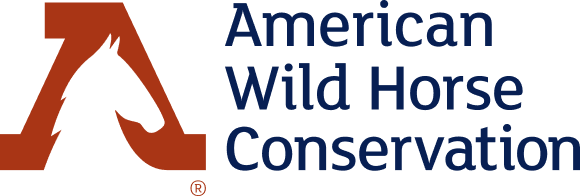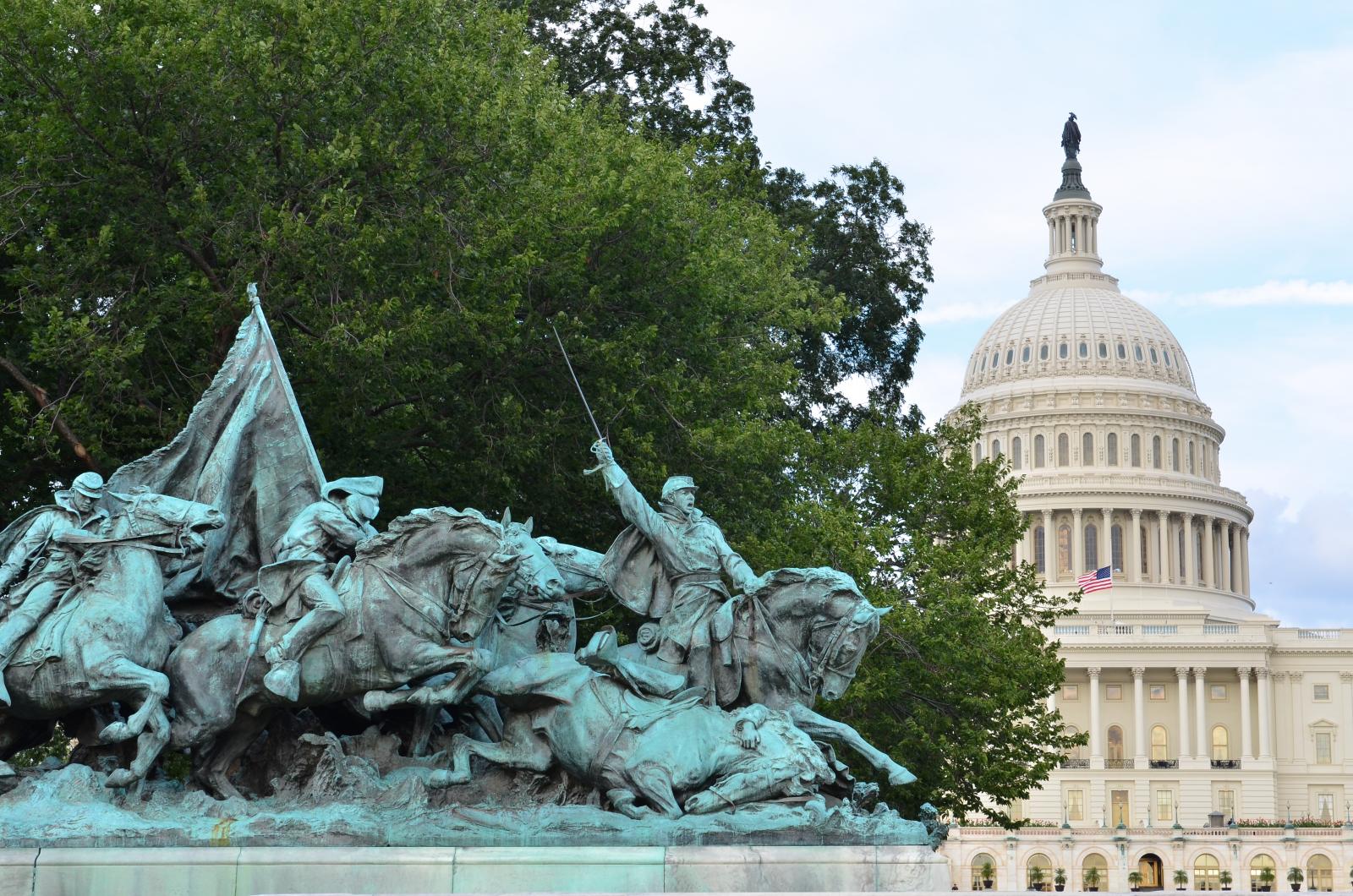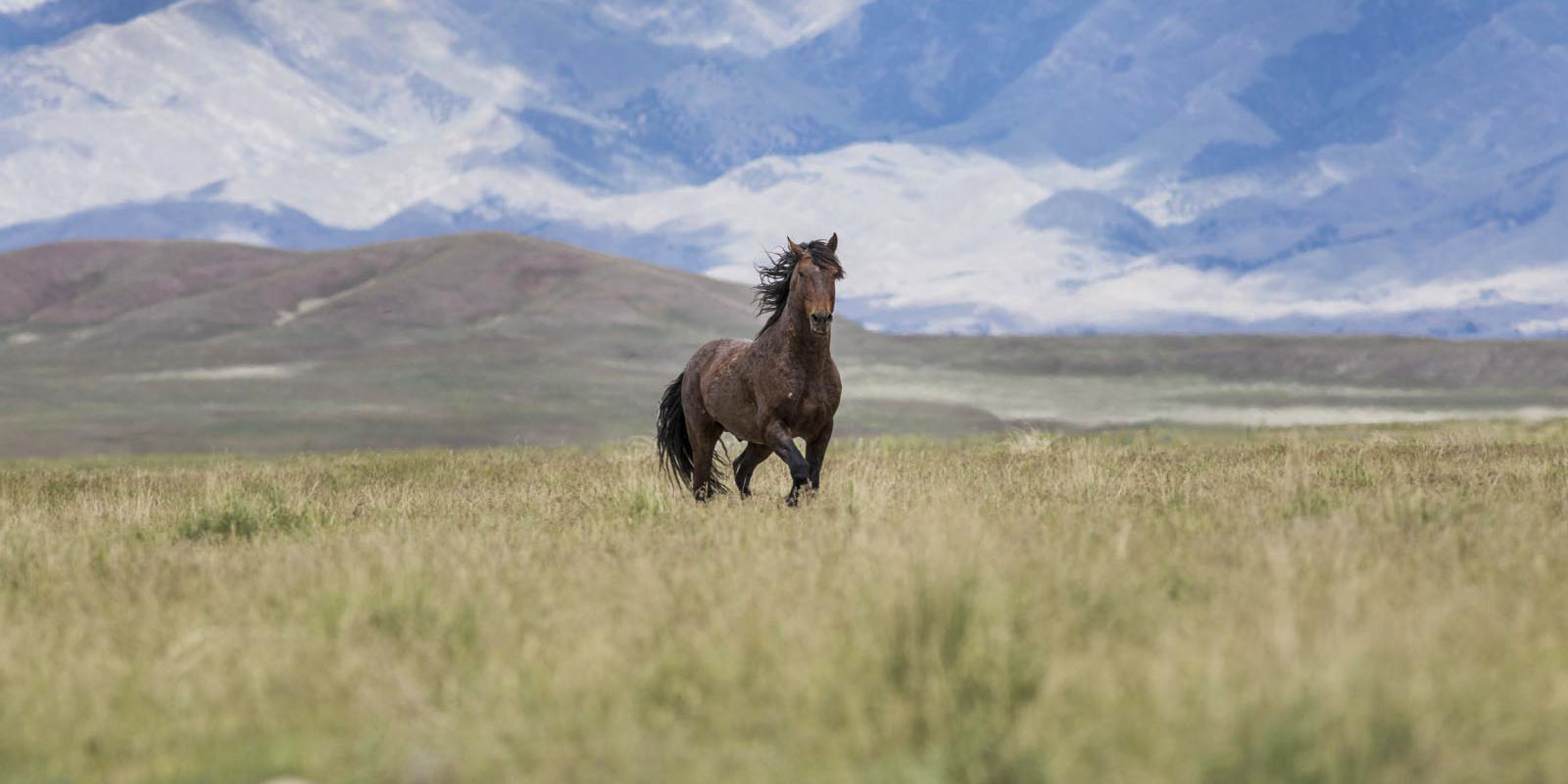Making progress with policy.
Our efforts include working collaboratively with other advocacy groups, meeting with members of Congress on Capitol Hill and mobilizing and empowering our supporters to reach out to their elected officials on behalf of wild horses and burros.
Our goals include repealing the Burns Amendment, which allows for the sale for slaughter of captured wild horses and burros, maintaining the current Congressional ban on slaughter (preventing the Burns Amendment from being in effect), advancing legislation to require the BLM to use humane birth control to manage wild horses in the wild instead of removing them en masse through cruel helicopter roundups. At the state level, we work to support laws to better protect wild horses and burros and to defeat laws that would harm these cherished animals.
Affecting change through legislation.
2019
-
Worked successfully to secure language in Fiscal Year 2020 spending legislation to maintain the prohibition on the BLM's sale of wild horses and burros for slaughter and to extend the prohibition to the U.S. Forest Service as well. AWHC worked hard to secure political support for the Forest Service prohibition, which was prompted by a 2018 plan by the Modoc National Forest in California to sell federally protected wild horses from the Devil’s Garden Wild Horse Territory without limitation on slaughter.
-
Successfully lobbied for passage of AB 128, our bill to better protect California horses from slaughter. The legislation was signed into law by Governor Gavin Newsom in October.
-
Helped to defeat New Mexico legislation, SB158, which would have placed the fate of the state’s wild horses in the hands of the New Mexico Livestock Board, providing a mechanism for the removal of all free-roaming horses in the state not protected by federal law.
2018
-
Helped defeat the Interior Department's request to Congress to lift the ban on destroying healthy wild horses and burros and selling them for slaughter. Fiscal Year 2017 spending legislation, passed by Congress in March, maintained the lethal management ban after the Senate rejected the House version of the bill which omitted the prohibition.
-
AWHC sponsored legislation that was authored by California State Assemblymember Todd Gloria, AB128, to strengthen protections for horses both domestic and wild from slaughter.
2017
-
Arizona Governor Doug Ducey and the U.S. Forest Service signed an agreement for the management of the Salt River wild horses in the Tonto National Forest near Phoenix. The agreement fulfills the conditional enactment clause of the Salt River Wild Horse Act, passed by the Arizona Legislature and signed into law by Gov. Ducey in May 2016. The agreement establishes a management structure and process to provide humane management for the Salt River wild horses, who reside in the Tonto National Forest. The agreement authorizes the state to partner with a non-profit organization to assist with management and care of the Salt River wild horses. (The state later awarded the contract to our coalition partner, the Salt River Wild Horse Management Group.)
2016
-
Working closely with the Salt River Wild Horse Management Group, passed state legislation to protect the Salt River wild horses and make it crime to kill, harass or interfere with the animals. On May 11, 2016, Arizona Governor Doug Ducey signed the Salt River Wild Horse Protection Act into law.
2013
-
Successfully worked to pass legislation in Nevada to allow for cooperative agreements between the state and non-profit organizations to humanely manage wild horses under state jurisdiction. That same year, we entered into a cooperative agreement with the State of Nevada to facilitate the rescue of Virginia Range horses who had been removed from their habitat, and to lay the groundwork for a humane fertility control.
At the agency level.
AWHC works with the Nevada Department of Agriculture through a cooperative agreement to implement a humane fertility control program for the Virginia Range mustangs in northern Nevada.
At the federal level, AWHC works with willing BLM field offices to support, expand and/or implement humane fertility control programs to reduce the number of wild horses removed from designated public lands habitat.
We also comment on all major federal actions by the BLM that will or could affect our wild horses and burros.
Under the National Environmental Policy Act ("NEPA"), the BLM is required to prepare either an Environmental Assessment ("EA") or an Environmental Impact Statement ("EIS"). The public is asked to comment on either form of environmental review document. Also as part of the process, the BLM will ask the public for scoping comments before writing an EA or EIS. AWHC also sends scoping comments to the BLM on all actions that will or could affect wild horses.
AWHC also comments on the rulemaking process when an agency plans to change or make a new regulation that will affect our wild horses and burros. When this occurs, an agency will provide notice to the public of a rulemaking in the Federal Register. Comments are accepted from the public during the rulemaking process.
See our most recent comments below:
- Spay Project Lead- Sent 6/12/19
- North Lander (scoping) - Sent 6/27/18
- Onaqui EA - Sent 7/12/18
- Warm Springs/Spay EA - Sent 7/30/18
- Wilson Creek EA - Sent 8/3/18
- North Hills EA - Sent 8/14/18
- CEQ ANPRM - Sent 8/20/18
- Spring Creek Basin - Sent 8/27/18
- Warm Springs/Revised EA Submitted 8/31/18
Submitting Formal Complaints
AWHC sends formal complaints and requests for action to the BLM when we believe a contractor is conducting a roundup in an inhumane manner.
When issues arise, we send letters like the ones below to request that the BLM suspend the roundup and ground the helicopters while an investigation is undertaken of the BLM's and contractor's conduct in the roundup. AWHC remains a diligent observer of all BLM wild horse activities.
- Bible Spring Complex Roundup Complaint
- Red Desert Complex Roundup Complaint
- Eagle HMA Roundup Complaint
- Warm Springs Roundup Complaint


